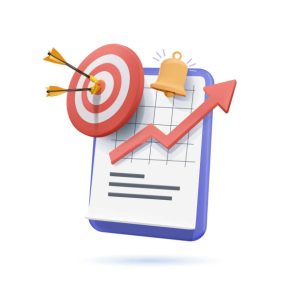Top 10 digitization tools to 10x productivity and financial success for farmers in 2023
 Top 10 digitization tools to 10x productivity and financial success for farmers in 2023
Top 10 digitization tools to 10x productivity and financial success for farmers in 2023
Digitization is advancing at an unmatched rate. The statistics on digital development, particularly in the area of agriculture, speak for themselves. Software, electronics, and sensors were responsible for 30% of the value produced by agricultural machinery in 2015, which was three times more than the value produced by the automotive sector. Procedures must be adjusted to a digital technology idea in order for farmers and the environment to benefit, as innovative processes may result in efficient and resource-conserving sustainable farming.
Agriculture is made up of numerous intricate, interconnected processes. Agricultural activities must be structured into effective stages to achieve a good harvest. As a result, the farmer, technology, and service-and-consulting idea form a triangle that determines the success of a certain product. The terms “precision farming” and “smart farming” recur frequently. What are they saying?
Precision farming
The targeted management of agricultural land utilizing cutting-edge technology. Examples include computerized tools for sensor-assisted soil assessment, automatically tracking roaming livestock, and precise control of agricultural equipment. Controlling spatial and temporal diversity within land plots is made possible by diverse farming techniques.
Precision farming is a concept in agriculture that involves new production and management techniques that heavily rely on data on a particular place and crop. Production procedures and growth environments are optimized using sensor technology and application techniques. Digital data can improve resource and economic efficiency and lessen the environmental impact compared to traditional agricultural practices.
From so-called field record files, information regarding various soil qualities and productivity within a specific plot of land may be electronically downloaded, allowing farmers to react in real time. The precise application of seeds, fertilizers, and pesticides is made possible by agricultural gear with satellite-controlled exact lane guidance and intelligent sensors. This makes it possible to use less fuel and seed overall.
Smart farming
The use of information and data technology for optimising sophisticated farming systems is known as smart farming, often referred to as Farming 4.0 and digital farming. To ensure an effective production process, seed planting can be customized to a particular field thanks to smart agriculture technology and contemporary data technologies. Utilizing information and data technologies helps farmers make decisions based on factual knowledge.
Electronics with fine control is also the foundation of smart farming. As a result, agricultural machinery can connect and access the same electronic field record data. However, how can a farmer process all of this data? There are farm management programs, agricultural applications, and online resources to assist farmers. The term “smart farming,” often known as “Farming 4.0,” refers to all aspects of farming, not simply specific machines. Farmers can use mobile devices to obtain real-time data (mobile phones or tablets). Data is gathered, analyzed, and evaluated about topics including the state of the soil and plants, the topography, climate, weather, resource usage, manpower, and financing applications. An agricultural company rarely buys modern gear and equipment from a single manufacturer. As a result, selecting an equipment provider depends not only on how effective the equipment is but also on whether or not devices may be freely connected.
The Concept of Digitization in Agricultural Services in Nigeria
In fact, digitization in agriculture has picked tremendous steam globally during the last two decades. To comprehend how digitalization has affected agriculture, it is crucial to recognize the industry’s current issues and anticipate the need to introduce and implement new technologies.
To complete the entire agricultural process, including site selection, land preparation, planting, fertilizer application, weeding, pest and disease management, harvesting, processing, and marketing, farmers need knowledge in all areas and stages. It is crucial to use the right communication channels and tools to provide farmers with accurate and timely information, transfer technology, and get useful feedback. This demonstrates the urgent need to transition from traditional, analogue means of information transfer—one-on-one contact—to digital communication tools and channels. Free mobile phone apps like WhatsApp, Facebook, Twitter, Telegram, and YouTube are important for ongoing skill improvement, better communication, and product marketing. Investigating these communication channels will guarantee ongoing, more effective, better, and larger interactions between farmers and diverse food and agriculture industry partners. The problems with agricultural extension service delivery to rural farmers, enhanced and targeted visual skill development training, connecting rural farmers to a wider range of markets for sales and marketing of their produce through prompt information delivery, and ultimately reducing production losses can all be solved by the earlier mentioned digital tools.
10 digitization tools to 10x productivity and financial success for farmers
- Robotics
People who think of farming as a life in the country might be unaware that the new generation of farmworkers doesn’t want to harvest fruit, pick up animals, or perform many of the labour-intensive duties typically associated with farming. Processing factories use robots to cut up corpses and harvest strawberries and milk cows. The market for agricultural robotics is estimated to be worth $5 billion globally and will double over the next five years.
- IoT And Sensors
When it comes to addressing the major issues of climate change and sustainability, animal welfare, and tracking in the food supply chain, the ability to track produce and live animals, detect health issues, and evaluate the environment inside the farm or the uptake of moisture from the soil in real-time is of enormous value. The prospects in agriculture, which is currently an $11.4 billion sector, may be greater than the growth of IoT devices in other industries (46 billion devices are connected).
- Drones
Drones have already surveyed 20 million hectares of China’s cotton crop, and their mobility and capacity to view objects that are difficult to see from the ground give them a genuine advantage in terms of insect control, fertilizer and herbicide application, irrigation, and harvest time.
- Virtual Reality (VR)
It is a remarkable chance for students and consumers to engage with farming to use VR to teach kids about the internal workings of animals (without vivisection) and how plants develop.
- Blockchain
Blockchain, the most intriguing and most misunderstood technology (using the same technology as Bitcoin), can bring transparency to a market that has frequently failed to win over customers’ trust. Blockchain offers a chance for the food business to reclaim its leadership.
 Top 10 digitization tools to 10x productivity and financial success for farmers in 2023
Top 10 digitization tools to 10x productivity and financial success for farmers in 2023
Read Also: Top 7 projected business challenges for 2023 and how to plan ahead for them
- Data Analytics
By 2025, 175 zettabytes of data will be stored globally. Ironically, many oil-rich countries haven’t necessarily gotten affluent; therefore, data is frequently referred to as the “new oil.” The future collection, management, and data processing are thought to justify the high values of Agtech businesses. It is a pipe dream to think that data would save agriculture, but data analytics can unlock important new insights for farmers and food producers.
- Artificial Intelligence (AI)
Learning by experience is more common than explicit information transfer in many farming and food-related jobs. This poses significant difficulties, including how to prevent cognitive bias, human mistakes, and misunderstandings. Extension agents, farming experts, consultants, and other professions may face extinction due to AI, but it’s more probable that AI will change how these fields operate. Faster access to more accurate data will still require interpretation.
- 3-D Printers
Farms worldwide will benefit from 3-D printers’ ability to repair equipment, manufacture food, or even create prosthetics for precious animals. It is much more obvious when supply chains are affected (as during COVID-19) or in areas where distribution issues are prevalent (e.g., Africa). Real efficiency and cost savings are produced by 3-D printing in the food supply chain and on farms.
- Extended Reality and The Metaverse
Since human eyesight is restricted to visible light, I mentioned the promise of extended reality (XR) in my previous Forbes piece. XR can allow us to view a wider spectrum. This can enhance food safety and health practices and be useful in managing crops, livestock, and food production.
- Cloud Connectivity
Compared to traditional server-based or even edge solutions, cloud-based computing services leverage real-time connectivity to the internet to provide more flexible resources and economies of scale. When many farms are still not connected, the need for connectivity—especially 5G—presents a real difficulty. Governments are aware that tackling connections is crucial if farming is to be modernized. Without it, the gap between rural and urban areas will widen.
Hope you enjoy this article?
Share your thoughts in the comment session.
Contact us today for your business consultancy and business advisory services. We can help you fine-tune your idea, structure your business, market your business, train your staff, consult on your retirement plan, coach you for financial success. We also write a business plan and help with fundraising strategies and Grant applications. We can help you start, grow, and expand your business.
We help institutions and organizations write concepts, implement Business plans, and train on business Plan writing in Nigeria.
We can help you write a detailed, bankable and comprehensive business plan for your business idea.
Call any of our business plan consultants on 08105636015, 08076359735, and 08113205312.
Or send a WhatsApp message or email us either at dayohub@gmail.com or info@dayoadetiloye.com.
Related